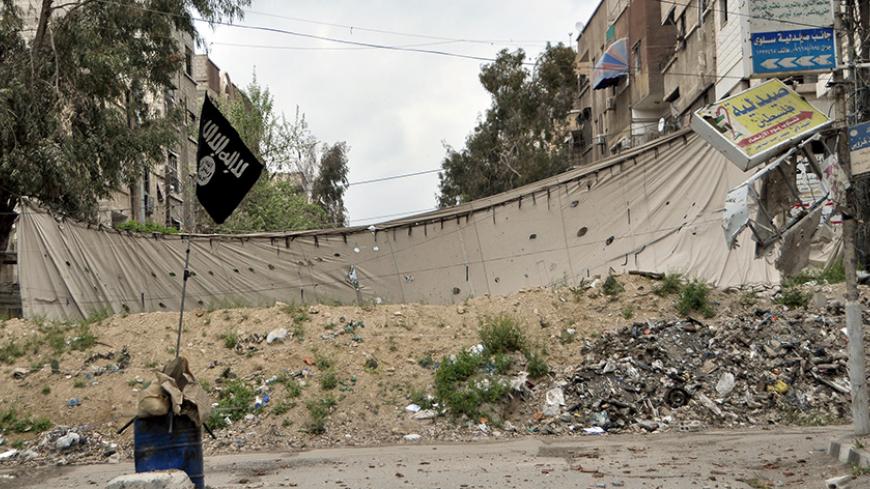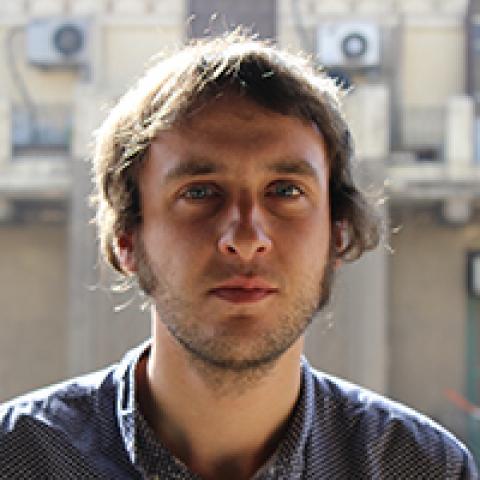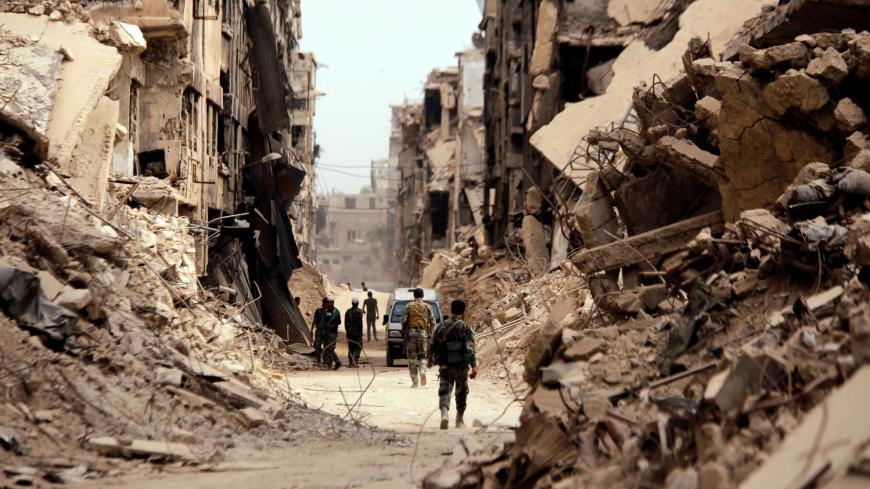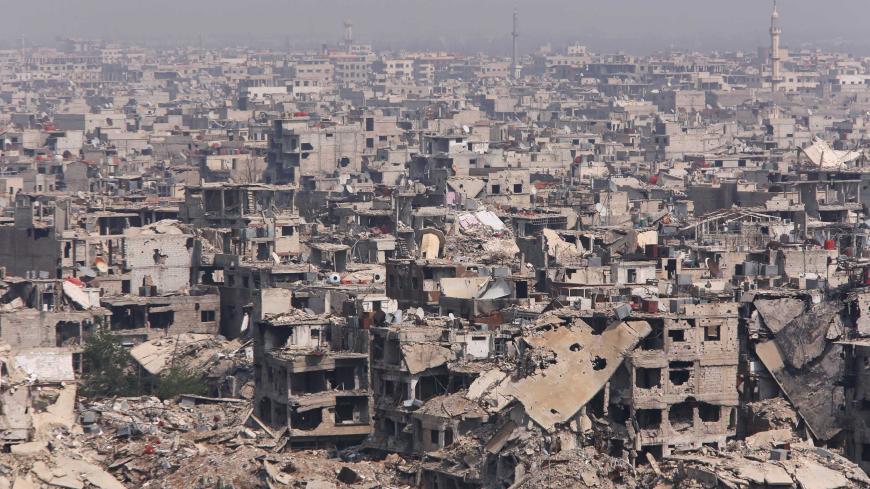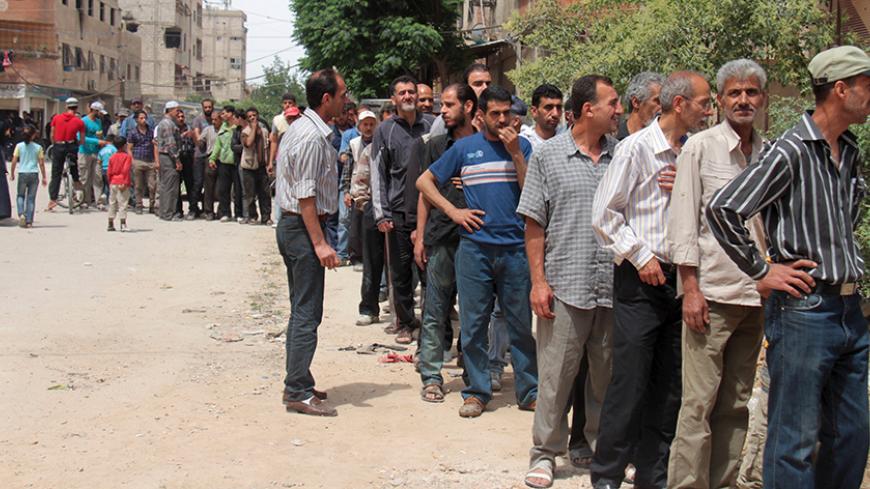![961403346 A member of the Syrian pro-government forces rides a bicycle through a damaged street in the Yarmuk Palestinian refugee camp on the southern outskirts of the capital Damascus on May 22, 2018. - The government seized earlier in the week the Yarmuk Palestinian camp and adjacent neighbourhoods of Tadamun and Hajar al-Aswad from the Islamic State (IS) group , putting Damascus fully under its control for the first time since 2012. (Photo by LOUAI BESHARA / AFP) / The erroneous mention[s] appearing in the metadat](/sites/default/files/styles/article_hero_medium/public/almpics/2020/10/GettyImages-961403346.jpg/GettyImages-961403346.jpg?h=a5ae579a&itok=FJSfs4a6)
![961403346 A member of the Syrian pro-government forces rides a bicycle through a damaged street in the Yarmuk Palestinian refugee camp on the southern outskirts of the capital Damascus on May 22, 2018. - The government seized earlier in the week the Yarmuk Palestinian camp and adjacent neighbourhoods of Tadamun and Hajar al-Aswad from the Islamic State (IS) group , putting Damascus fully under its control for the first time since 2012. (Photo by LOUAI BESHARA / AFP) / The erroneous mention[s] appearing in the metadat](/sites/default/files/styles/article_hero_medium/public/almpics/2020/10/GettyImages-961403346.jpg/GettyImages-961403346.jpg?h=a5ae579a&itok=FJSfs4a6)
Why AL-Monitor?
AL-Monitor is an award-winning media outlet covering the Middle East, valued for its independence, diversity and analysis. It is read widely by US, international and Middle East decision makers at the highest levels, as well as by media, thought and business leaders and academia.
Read by









Live news & notifications

Premier analysis of the Middle East

Live events & video

Specialized Newsletters

Big, exclusive interviews

ALM archives since 2012
![961403346 A member of the Syrian pro-government forces rides a bicycle through a damaged street in the Yarmuk Palestinian refugee camp on the southern outskirts of the capital Damascus on May 22, 2018. - The government seized earlier in the week the Yarmuk Palestinian camp and adjacent neighbourhoods of Tadamun and Hajar al-Aswad from the Islamic State (IS) group , putting Damascus fully under its control for the first time since 2012. (Photo by LOUAI BESHARA / AFP) / The erroneous mention[s] appearing in the metadat](/sites/default/files/styles/article_hero_medium/public/almpics/2020/10/GettyImages-961403346.jpg/GettyImages-961403346.jpg?h=a5ae579a&itok=FJSfs4a6)
Subscribe for unlimited access
By becoming an Al-Monitor subscriber, you drive our team’s rigorous and independent journalism spanning the Middle East.
Continue

